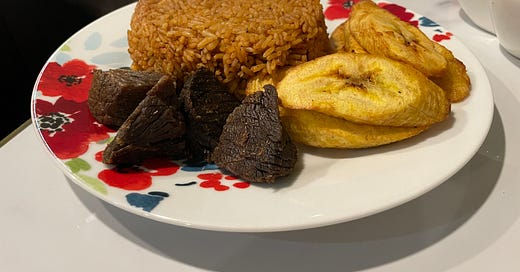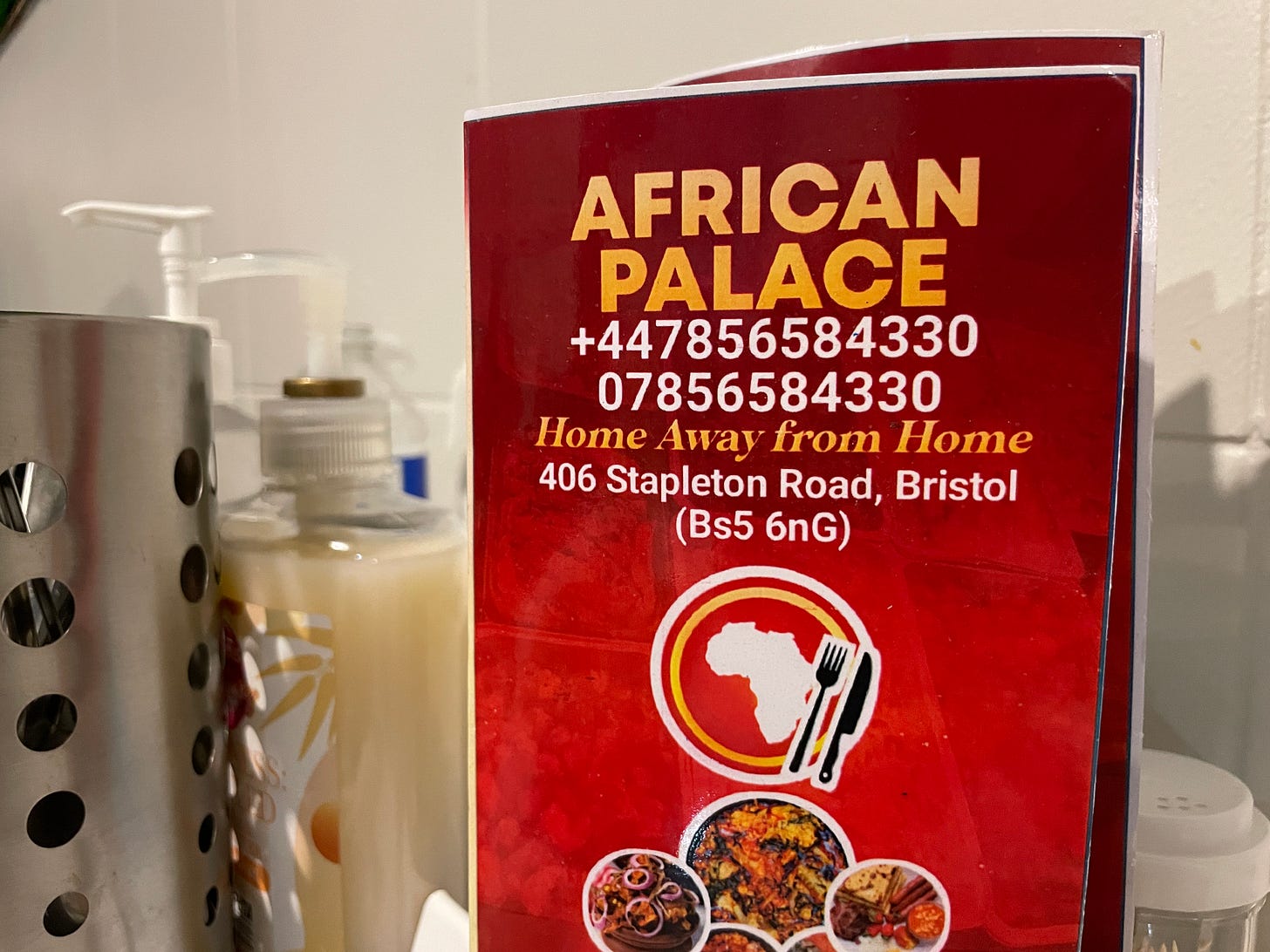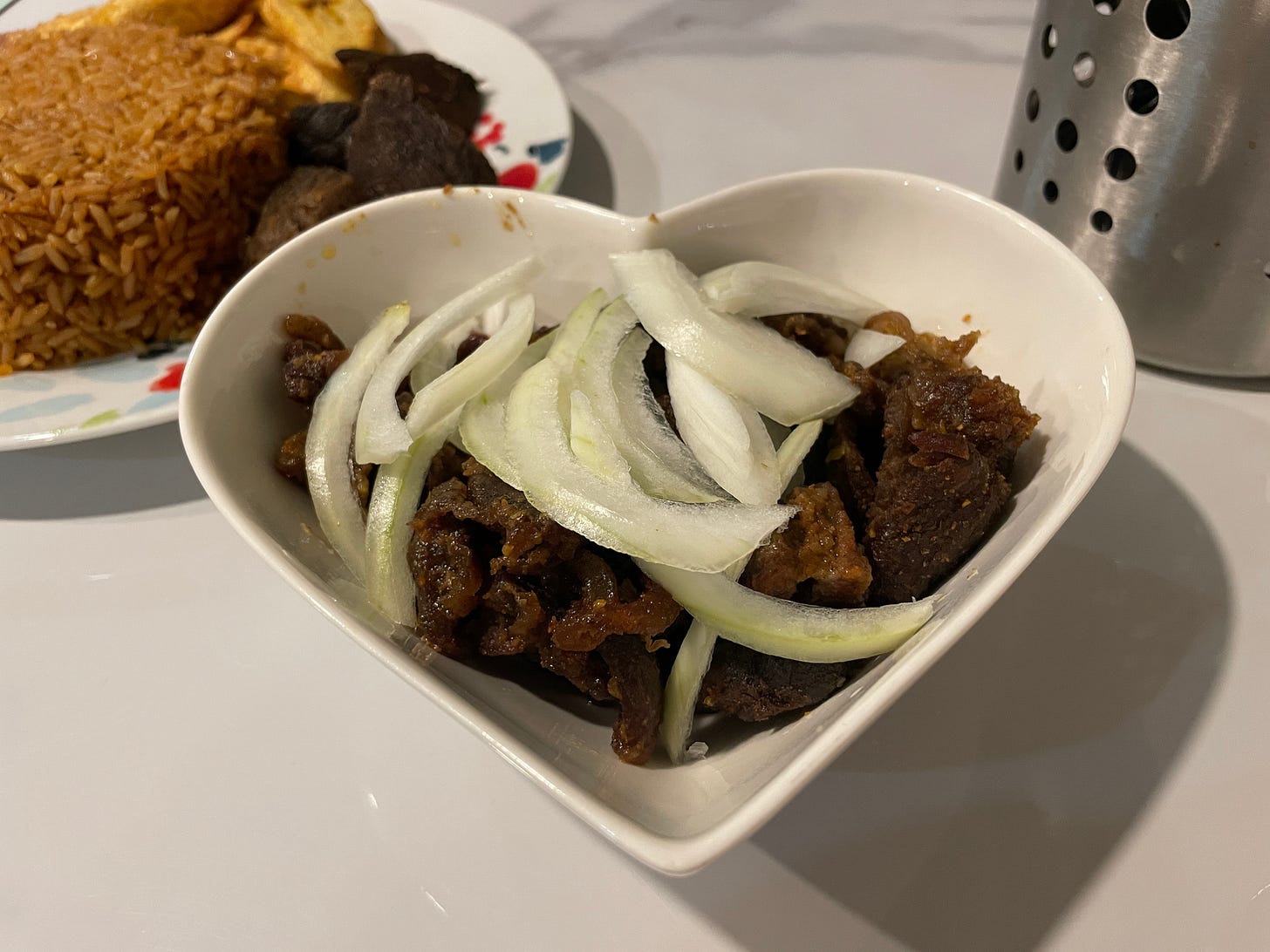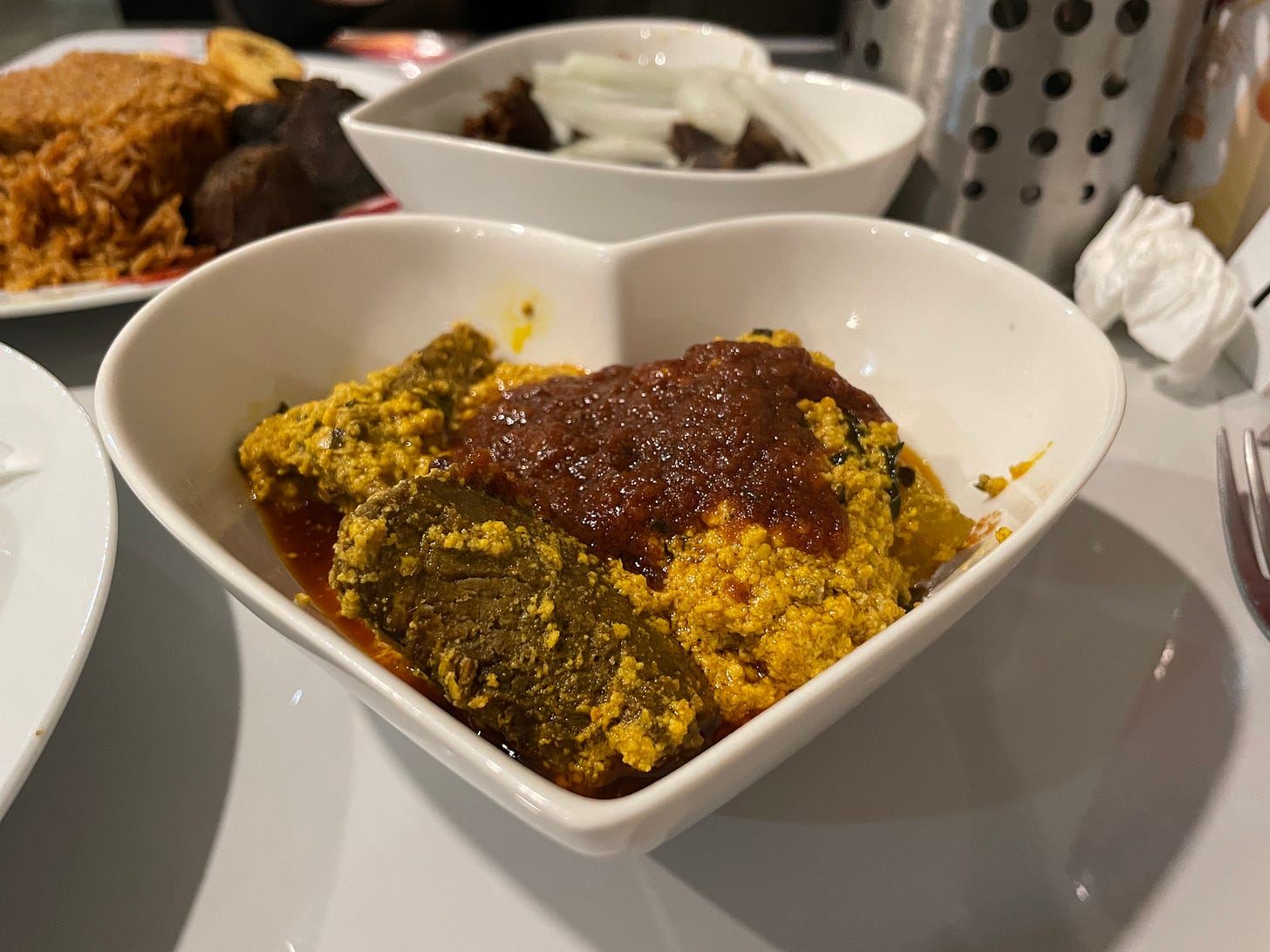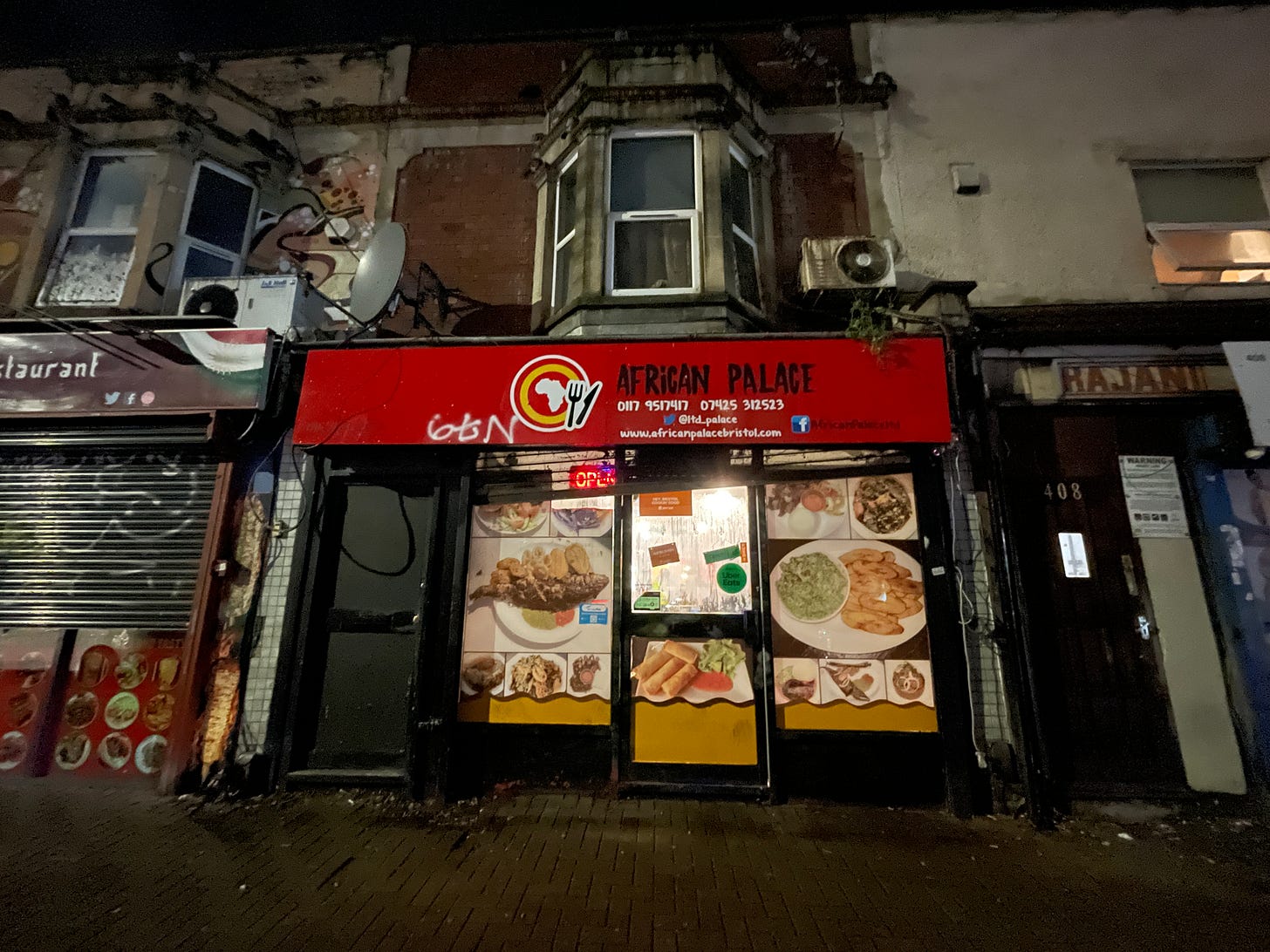African Palace, Stapleton Road: 'My curiosity is set aflame'
This Nigerian eatery in Easton had me feeling all philosophical
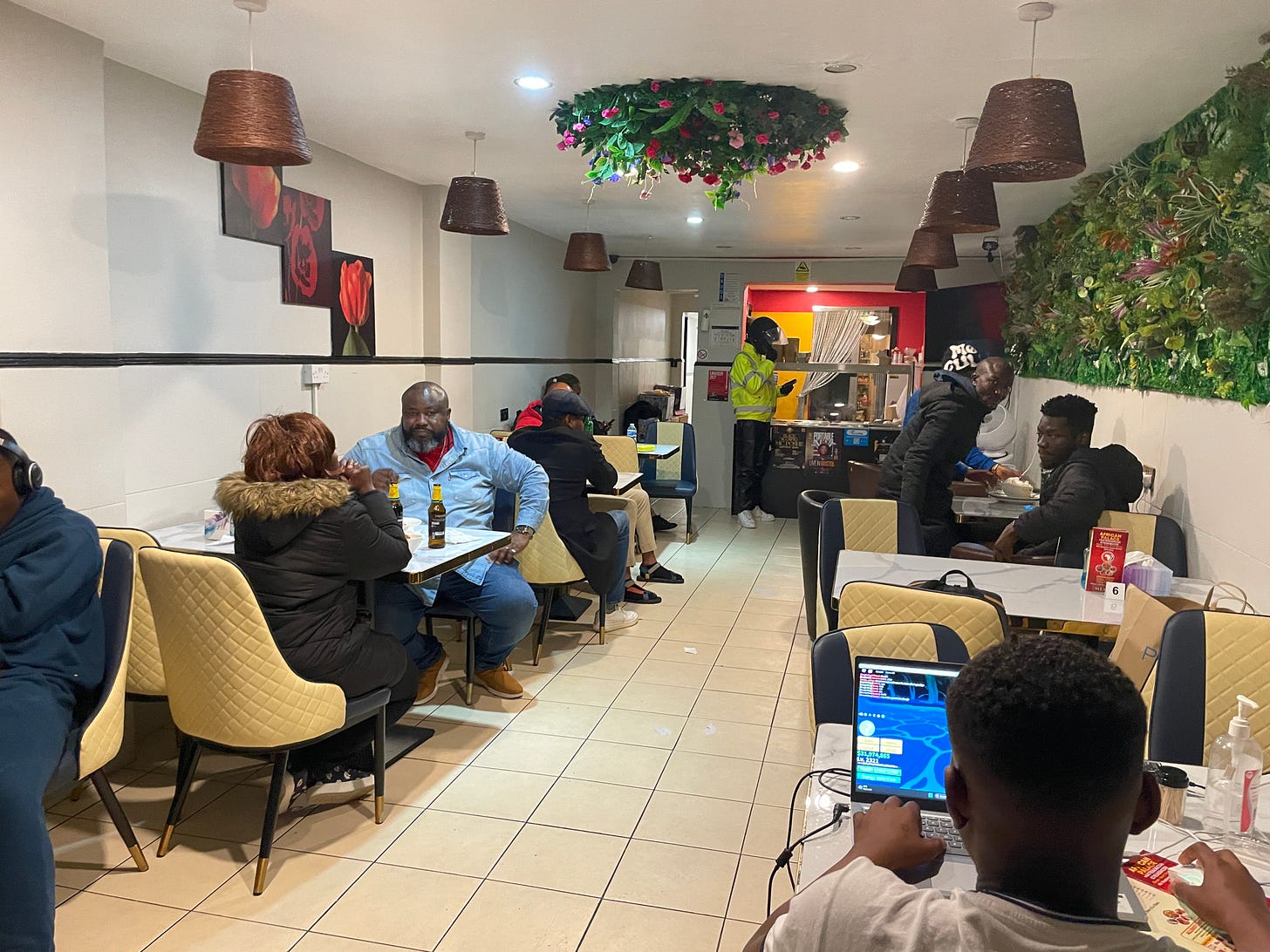
I have a theory that the reason time feels slower when we are younger is because most of our experiences are new. The older we get, the more our days are made up of the same experiences we’ve had before. Our brains don’t have to work as hard. They switch off, or in my case divert their attention elsewhere - to what’s for dinner, daydreaming or trying to untie the various knots that life has a tendency to throw at us. And so time speeds up. We are not as present.
I have another theory - and I particularly like this one - that happiness and being present are the same thing. Or at least close enough to eclipsing each other on a Venn diagram that we can interchange them in most scenarios. Happiness can be elusive. People have written whole books on how to be happy. Scientists and philosophers have been trying to define what happiness is, and how to achieve it, for hundreds of years.
Fortunately for them, I have solved the problem. To be truly present is to be happy, and vice versa. When you are focused only on what is present - the smells of cooking, the feeling of the breeze on your face, the sound of leaves brushing against each other - and you are not thinking at all about what came before or what is to come next; that is happiness. It is my personal philosophy, anyway. Take it or leave it.
A long-winded way to start talking about a restaurant eh?
African Palace was a new experience for me; one that slowed time down and forced me to be present. New flavours, new spices, new textures have a way of doing that, don’t they? They put the handbrake on life and jolt you sharply back into your seat. A meal that awakens neurons in the furthest reaches of your cerebrum.
African Palace is a feast for the senses before you’ve even reached the menu. Afro-beats lift fellow diners out of their seats; come Saturday night dancing is encouraged just as much as eating. It’s impossible to keep still. We’re invited to dance but politely decline, as we can’t resist turning our attention to the vast menu.
We order jollof rice with grilled beef, because they didn’t have fried chicken (£10), a side of plantain (£5), goat suya (£15), poundo with egusi soup and beef (£10) and two bottles of water (£2). We strongly considered isewu (£20), which is a whole spicy goats head, but decided against it as we had already eaten in one other restaurant that evening (a story for another time) and weren’t hungry enough.
Jollof rice is the kind of portion size that I imagine gym bros might get through in a week, though the accompanying beef would leave them reaching for the protein powder. In Nigeria, jollof rice is very much a main and not relegated to the side lines, so I suppose this portioning makes sense. Each grain is enrobed in tomato and sweet, sweet spices. I struggle to separate allspice, cloves and cinnamon but I’d put money on at least two of the three being in the spice mix. It’s moreish as hell.
The four chunks of beef it’s served with appear to have spent hours languishing under a heat lamp and are now startlingly similar in appearance to British expats who spend nine months of the year in Benidorm while complaining about immigrants. Leathery. That said, if you consider it an underdone beef jerky, it’s actually enjoyable.
The fried plantain is wonderful, as you will know if you’ve ever had fried plantain.
Do you know what concerns me greatly? I googled goat suya, so that I might be able to shed some more light on the spices involved and the first thing that comes up is a Jamie Oliver recipe. Fucking hell*. Is there no dish that man won’t appropriate? When it comes to Westernising and ruining dishes, especially those with any semblance of spice, I can almost hear him echoing Thanos: “I am inevitable”.
Not everything can or should be cooked with five ingredients in half an hour.
Anyway, according to dear Uncle Jamie, in the spice rub is ginger, garlic, smoked paprika, cayenne pepper (for extra heat - his words not mine), and peanuts. He got the peanuts right. He may have gotten other bits right but suya is inherently spicy. It’s part of what makes it so wickedly good. Also not dissimilar to jerky, it will wrap its chewy meatiness around the habit forming centre of your brain and enslave your fingers to keep reaching for more.
Our final dish boots me completely out of my comfort zone but in the best possible way. Egusi is referred to as a soup but it’s thick with beef, more like a stew. It’s made of ground melon seeds, which form a fiercely bitter paste that is swimming in palm oil. It doesn’t sound all that nice, and in some ways it’s not, but it is so alien to my palette that my curiosity is set aflame. So rare is it to find something so far away from what I know.
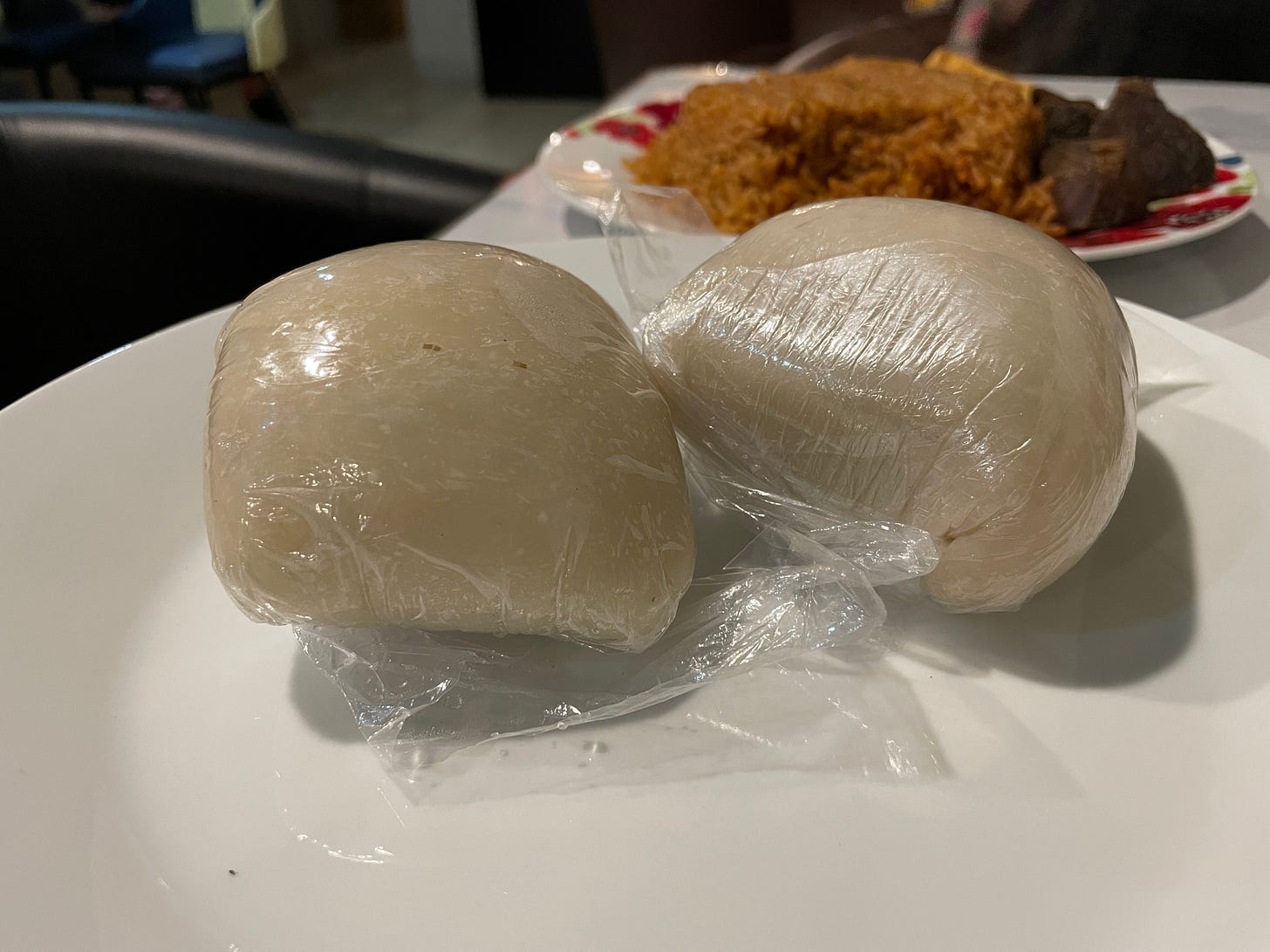
It’s served with poundo, a cling wrapped package of starch intended for dipping. Alarmingly similar to play-dough, it’s made from pounded yam. Again, I don’t love it, and wouldn’t choose it over bread for dipping, but the experience is enthralling.
African Palace is perhaps a three minute walk from my house, which means trying more of the extensive menu and familiarising myself with the names of dishes I don’t recognise should be alarmingly easy. If every experience is as welcoming and interesting as the one I had on Saturday night, I shall definitely be returning.
My adventures in African food are just beginning. So far, my favourites have been Somalian, Ethiopian and Moroccan dishes. Nigeria is the furthest away, geographically and gastronomically, from the foods that I know. Therefore for me, it’s the kind of food that can do exactly what I described above; it can slow down time. It can make you very happy. And if that’s not exactly what eating in a restaurant is meant to feel like, then I don’t know what is.
Words and photos by Meg Houghton-Gilmour
African Palace, 406 Stapleton Rd, Easton, BS5 6NQ
*As this review is already little more than a stream of consciousness, I didn’t want to interrupt with a tangent above, but Jamie Oliver being the first result on Google to come up when searching for goat suya - I mean really - had me thinking about this excellent Vittles essay I read earlier on SEO and how it’s changing how we eat. Take a read.


